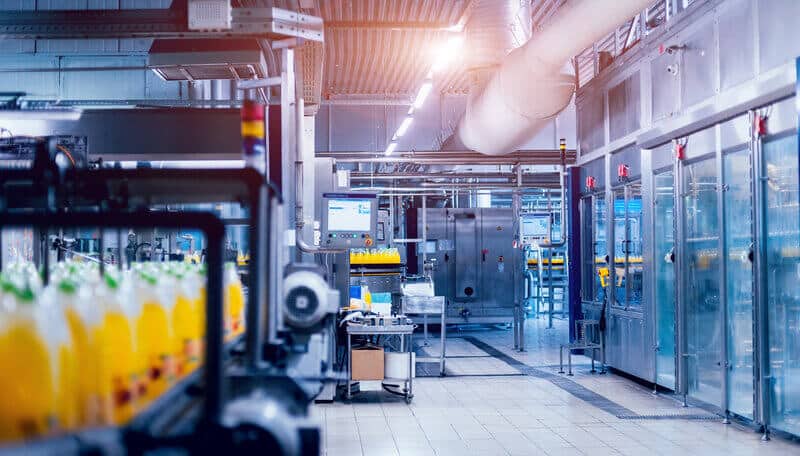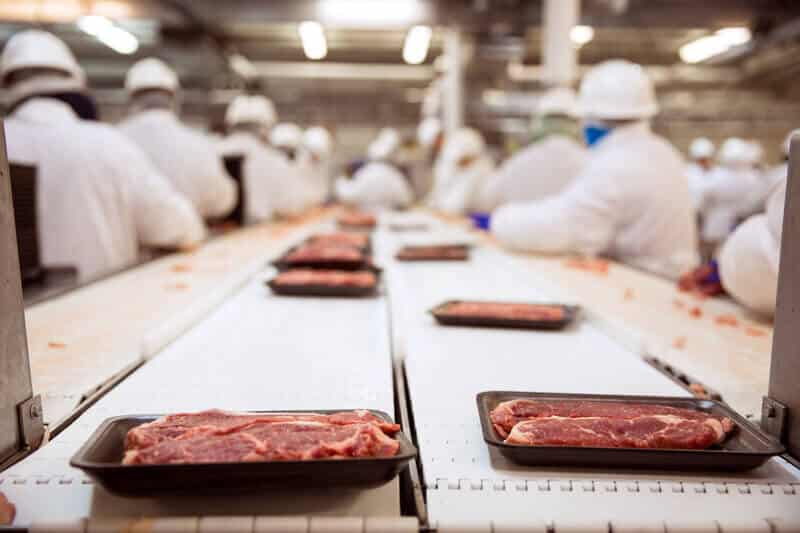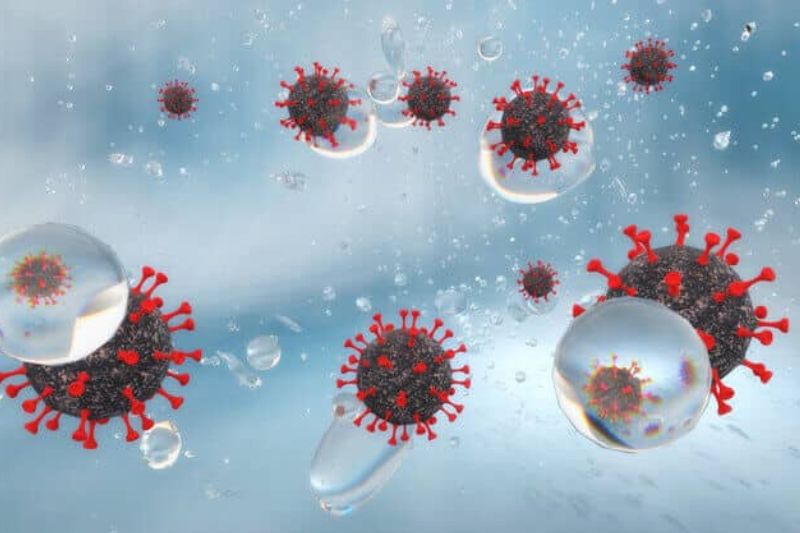The recent Covid-19 outbreak has highlighted the risks that airborne viruses pose to the health of not only the public but in particular, those working in close quarters such as food factories, and how easily it will spread in places where hygiene and food sanitation systems are poor.
Airborne contamination is one of the most frequent causes of direct tainting of food and a proactive approach is now necessary to better prepare your facility against viruses to protect the health of workers, reduce occupational health risks, and enhance the safety of the food supply chain.
Although it’s impossible to completely avoid airborne viruses, there are some things you can do to minimise airborne viruses in your factory. An effective solution is food sanitisation.
What are airborne viruses?
Airborne viruses pass from one person to another when microorganisms such as bacteria, fungi, or viruses travel through the air in aerosolized particles.
When people with certain infections cough, blow their runny nose, sneeze, or talk, spewing nasal and throat secretions into the air; simply breathing in these particles put you and your workers at risk of contracting an airborne virus.
Some viruses or bacteria can linger in the air, and on surfaces. When these surfaces are touched, germs can be spread via human contact, which is why it’s vital to incorporate food sanitisation in your factory.
Types of airborne viruses
- The common cold
- Influenza
- Covid-19
- Chickenpox
- Measles
- Mumps
- Meningitis,
- Tuberculosis
- Anthrax
What is food sanitisation in a facility?
Food sanitation refers to the thorough cleaning and sanitation process within a facility that aims to prevent the spread of disease and contamination.
The purpose of food sanitation requirements is to ensure that every facility meets the health and safety guidelines that are put in place to protect the health and well-being of consumers, workers, and the products made within food processing facilities.
Food sanitation maintains or restores a state of cleanliness and promotes hygiene for the prevention of foodborne and airborne viruses.
Cleaning vs. sanitising
Cleaning and sanitizing are not the same but two separate procedures that go hand in hand for effective results.
Cleaning helps increase the effectiveness of sanitation by removing organic material such as dirt, soil and debris at a visible surface level and is likely cleaned with detergent and water. This organic matter can be a breeding ground for bacteria. Therefore, cleaning needs to be done prior to sanitisation.
Sanitising is the process of killing food poisoning bacteria that can’t be seen with the naked eye, and is achieved by chemical, or heat treatments that destroy harmful bacteria and diseases.

The importance of food sanitisation in your factory
Problems in your factory can occur when airborne microorganisms settle on various products such as alcoholic beverages, meat, and dairy products.
The pathogens can also settle on hard surfaces in food processing plants contributing to the growth of biofilms. Any contamination could then lead to the consumption of spoiled products, which could result in serious illness for consumers, as well as recalls and fines from food manufacturers, not to mention your business’s reputation could be compromised.
Therefore, it is essential for food manufacturers to take the needed safety measures. A lack of safety measures can cause your company to go out of business and without proper food sanitation, you’re also putting your employees at risk.
Having a food sanitisation plan in place is a key step to ensuring your facility is running to its optimal condition. However, an effective food hygiene plan also includes controlling pests. This includes insects and birds.
Bird droppings are a biological hazard, carrying up to 60 diseases transmittable to humans which can transfer to food. As birds like to nest near outdoor ventilation intakes, these diseases can quickly transfer to the air inside your building.
Read more to see how our bird proofing and deterrent solutions can help your business.

We can help to ensure your food factory is clean
Food safety and proper food factory sanitation are two vital aspects that should be maintained to significantly reduce the risk of bacteria and other harmful pathogens lingering and contaminating your food products.
Our team are highly trained and skilled in industrial and commercial high-strength cleaning applications. We work at heights, in confined spaces, and we remove moss, mould, fungus, grime, airborne salt, grease, and much more in all hard-to-reach places.
We also offer a complete clean of all production equipment as well as walls, floors, ceilings, drains, vents, and other surfaces.
Call us today to ensure your factory meets all health and safety requirements when it comes to food sanitisation while preventing airborne viruses from wreaking havoc in your facility.

